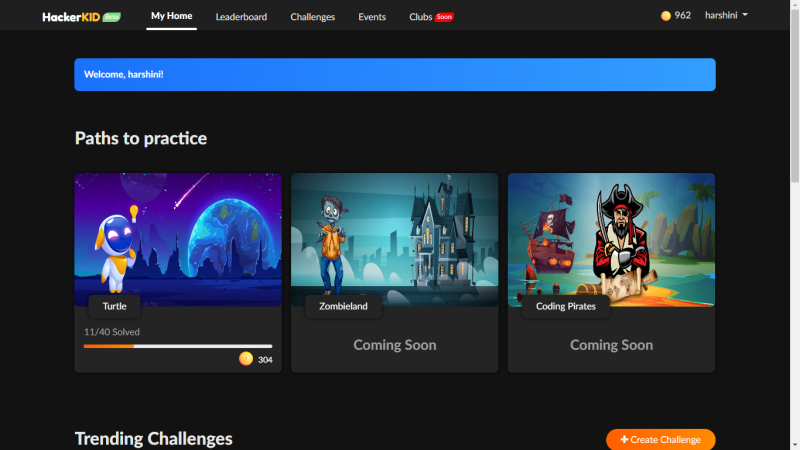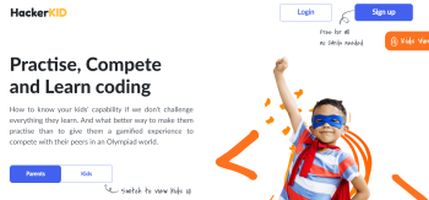Called ‘HackerKID,’ it uses block-based programming with a game-based environment specially designed for kids, making coding a fun-filled activity; Several features offered free of cost to Students

IIT Madras-incubated startup GUVI has developed India’s first ‘Gamified Coding Platform’ called ‘HackerKID,’ which aims to teach coding for kids using a game-based environment.
The Startup worked with more than 1,200 kids from the Netherlands, the U.S., Australia and India while developing the product features and designs for HackerKID.
The children are introduced to ‘Block-Based Programming’ in HackerKID and provided with a virtual playground to practice challenges. Block-based Programming is an easy and powerful way to develop software. The ‘drag and drop’ of blocks or chunks of coding instructions make it simpler for kids, when compared to conventional classroom teaching, to learn the foundations of programming flow and computational thinking.

The beginner’s level of ‘Turtle Module’ is being offered free of cost and features points, rewards, badges for each activity in block-based programming and showcases the kid’s creativity to fellow learners through a leaderboard. The ‘Turtle’ module prepares kids for the ‘International Block Coding Olympiad’ which is scheduled to be held shortly.
Highlighting the unique aspects of ‘HackerKID,’ Mr. S.P. Balamurugan, Co-founder and Chief Executive Officer, GUVI, said, “Although learning to code has its amazing advantages among young minds, it is not easy for kids to assimilate the concepts of Computer Science. Also, there exists a real tussle to draw their attention and to develop an interest in them with conventional text-based coding. For this very reason, HackerKID serves as the platform for kids to start their journey in coding.”
Registrations are now made open to the public. Parents can sign-up at http://www.hackerkid.org and experience the platform along with their kids. Bulk registrations for schools are also facilitated free of cost. Requests can be sent to [email protected]
Unlike the traditional text-based coding classroom approach, the gaming style with the ‘play-to-code’ method would enable children to master the flow in programming. The ‘Challenges’ segment enables kids to create and share problems with fellow learners to solve. Whether to be an individual performer or an active group member is a choice made by the student. As the modules are aligned with the academic curriculum for grades, it is easy for the kids to relate what they learn with what they play.





